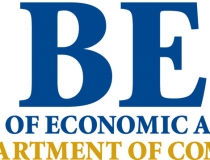Should You Opt Out Of IRS Offshore Amnesty?
http://www.bna.com/opt-irs-offshore-n17179879879/
Since 2009, many U.S. persons with foreign accounts and income have sought shelter from the IRS onslaught. Not everyone has entered the IRS voluntary disclosure program. Still, it can be the safest move and the only one guaranteeing no prosecution. You may fear that if you don’t enter the program, you might be caught and it will be too late to get the program’s formulaic deal.
After all, at least the penalties there are capped. Undisclosed foreign accounts or income can be serious and can carry civil and criminal penalties. The IRS Offshore Voluntary Disclosure Program (OVDP) isn’t perfect, but it is a finite way of getting beyond the fear of discovery and prosecution. If you are evaluating the current 27.5% miscellaneous offshore penalty and cringing about how much it will hurt, what about opting out?
There is much talk of opting-out but sparse data so far. The opt-out election is irrevocable and is typically made after the IRS has calculated a proposed miscellaneous offshore penalty. That might be a year after you enter, so you have much time to consider it. You can try for no or reduced penalties.
Still, once outside the program, the IRS may assess the civil fraud penalty or information return penalties. Even criminal prosecution is conceivable after opting out, although that has evidently not happened to anyone. According to the Taxpayer Advocate Service, about 310 taxpayers opted out of the 2009 and 2011 offshore voluntary disclosure programs. One thing it meant was delays.
For 2009 opt-outs, the IRS took about 550 days to close the case after the opt-out election. For 2010 OVDP opt-outs, the IRS took a more svelte 176 days. Most opt-outs involved small dollars, which seems counterintuitive. The incentives to opt-out seem much higher if large dollars are at stake.
If you might pay a $50,000 penalty in the OVDP, opting out probably can’t save you too much, especially if by opting out you end up with non-willful penalties. A $500,000 penalty within the OVDP, however, may make opting out hard to resist, particularly if you have good facts and no evidence of willfulness or evasion. Yet, potential foreign bank accounting reporting (FBAR) penalties for larger accounts can be high.
If the maximum account balance exceeds $1 million, a willful FBAR penalty could be the greater of $100,000 or 50% of the account balance. The taxpayer can argue that FBAR penalties are inappropriate after opting-out. However, the IRS can conceivably seek FBAR penalties per account, per year.
Some say the IRS may apply rough justice by calculating FBAR penalties that approximate the 27.5% miscellaneous offshore penalty within the OVDP. Plus, if there are passive foreign investment company (PFIC) issues, the amended tax returns submitted as part of the OVDP will need to be modified to reflect statutory PFIC computations, not the OVDP’s mark-to-market computations. Some advisers believe the IRS may be more likely to assert additional income tax penalties after an opt-out.
Civil fraud can trump the statute of limitations, so if you opt-out, the IRS could conceivably even examine tax years prior to the OVDP’s 8-year disclosure period. Past admissions-even OVDP submissions themselves-can be used against the taxpayer if he or she opts-out. Thus, it is important to consider what you’ve told the IRS prior to making the opt-out election.
Bottom line? The OVDP is predictable. Opting out is much less so. As the above considerations reflect, think about your facts. If you have no evidence of willfulness, the sheer numbers may make opting out attractive. Ask whether the potential risks of opting out offset the potential rewards. Individual advice about the particular facts are important.
For more information, in the Tax Management Portfolios, see Toscher, Perez, Rettig and Robbins, 636 T.M., Tax Crimes, and in Tax Practice Series, see ¶3830, Penalties.
© 2013 Robert W. Wood
Originally published by Forbes.com.
Recent Posts




